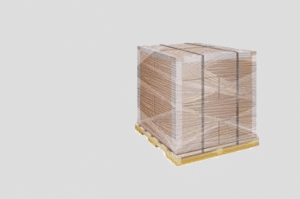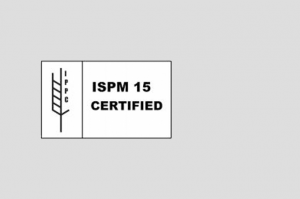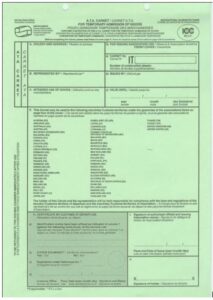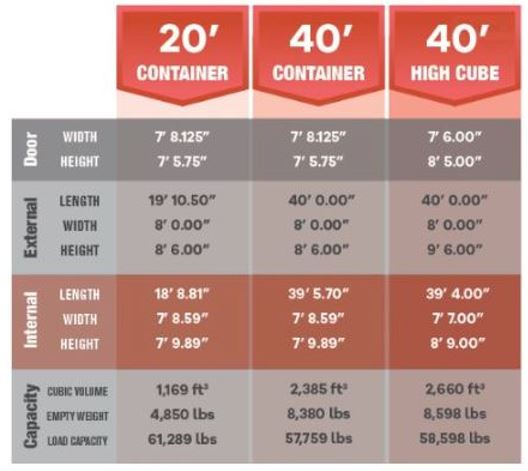Ocean Freight is the least expensive mode for the transport of cargo worldwide. Exfreight offers door to door and door to port services to over 150 countries worldwide, so no matter where you are shipping to we have you covered. ExFreight is a licensed and bonded NVOCC offering both full container load (FCL) and less than full container (LCL) load shipping services for moving your cargo. (FCL) Full Container Load is a cost-effective way to ship large loads and rates are typically lower when shipping a full container load. This is generally defined as 12+ pallets. In addition, FCL shipping usually means that your shipment will be safer because it will not be consolidated with other cargo allowing you to save money on crating or packaging. (LCL) Less than Container Load is shipping your items in a shared container with other businesses freight. If you’re shipping a smaller load, LCL can potentially save you money vs. having to pay for an entire container space. Consolidating your goods with other items being shipped can also help you ship faster in certain cases. LCL is ideal for smaller ocean shipments however it requires additional packaging to ensure safe transit.
DOOR TO PORT Includes: pick-up from shipper, basic customs export declaration, Ocean or Air freight to PORT only. Door to Port Does not include: destination terminal fees, customs entry, delivery, import duties and taxes, storage charges, exam fees or any other destination services.
DOOR TO DOOR Includes: pick-up from the shipper, basic customs export declaration, Ocean or Air freight, destination terminal fees, basic customs entry fee, delivery to consignee address with a loading dock (within regular shipping and receiving hours)
Door to door Does not include: destination duties and taxes, special import permit (if applicable), exam fees, storage charges (if incurred), any other destination services.
Ocean Freight is the least expensive mode for the transport of cargo worldwide. Exfreight offers door to door and door to port services to over 150 countries worldwide, so no matter where you are shipping to we have you covered. ExFreight is a licensed and bonded NVOCC offering both full container load (FCL) and less than full container (LCL) load shipping services for moving your cargo. (FCL) Full Container Load is a cost-effective way to ship large loads and rates are typically lower when shipping a full container load. This is generally defined as 12+ pallets. In addition, FCL shipping usually means that your shipment will be safer because it will not be consolidated with other cargo allowing you to save money on crating or packaging. (LCL) Less than Container Load is shipping your items in a shared container with other businesses freight. If you’re shipping a smaller load, LCL can potentially save you money vs. having to pay for an entire container space. Consolidating your goods with other items being shipped can also help you ship faster in certain cases. LCL is ideal for smaller ocean shipments however it requires additional packaging to ensure safe transit.
VGM certificate is a document attesting to the weight of the cargo loaded in the container. Effective from 1st July 2016, with the SOLAS (Safety of Life at Sea) amendment covering container weighing regulations, a packed container will no longer be allowed to be loaded on board vessels unless its Verified Gross Mass (VGM) has been provided by the shipper to the ocean carriers and/or port terminal representatives prior to the load list cut-off date.
The new regulation was adopted by the IMO (International Maritime Organization) to increase maritime safety and reduce the dangers to cargo, containers, and all those involved in container transport throughout the supply chain.
Your VGM document MUST be submitted 48 hours prior to the scheduled sailing date. Failure to provide the document in time may result in your shipment being rolled to the next vessel and port storage fees. If you are the importer of the shipment you do not need to submit the VGM document. We will get the document from the shipper at origin prior to sailing.
LCL ocean freight
Maximum dimensions per piece for our ocean LCL service is 317x226x225 cm || 120x89x88 in
FCL ocean freight
There are no maximum dimensions for our ocean FCL service. As long as your shipment fits in the container we will move it. There is a maximum cargo weight for full containers which is currently set to 16,783 kgs || 37,000 lbs per container. On some lanes, we can accept a higher per container weight. Please check with our sales team if you need to move a container that is heavier than 16,783 kgs || 37,000 lbs.
Notwithstanding anything herein, unless otherwise mandated by compulsorily applicable law, Carrier’s liability for compensation for loss of or damage to Goods shall in no case exceed the amount of US $500 per package or per customary freight unit, unless Merchant, with the consent of Carrier, has declared a higher value for the Goods in the space provided on the front of this Bill of Lading and paid extra freight per Carrier’s tariff, in which case such higher value shall be the limit of Carrier’s liability. Any partial loss or damage shall be adjusted pro rata on the basis of such declared value. Where a container is stuffed by Shipper or on its behalf, and the container is sealed when received by Carrier for shipment, Carrier’s liability will be limited to US $500 with respect to the contents of each such container, except when the Shipper declares the value on the face hereof and pays additional charges on such declared value as stated in Carrier’s tariff. The freight charged on sealed containers when no higher valuation is declared by the Shipper is based on a value of US $500 per container. However, Carrier shall not, in any case, be liable for an amount greater than the actual loss to the person entitled to make the claim. Carrier shall have the option of replacing lost Goods or repairing damaged Goods.7.2 In any case where Carrier’s liability for compensation may exceed the amounts set forth in Section 7.1 above, compensation shall be calculated by reference to the value of the Goods, according to their current market price, at the time and place they are delivered, or should have been delivered, in accordance with this contract.7.3 If the value of the Goods is less than US $500 per package or per customary freight unit, their value for compensation purposes shall be deemed to be the invoice value, plus freight and insurance, if paid.7.4 On shipments involving carriage by land in the United States, and for liabilities determined pursuant to Section 6.4(c) of this Bill of Lading, loss of or damage to Goods shall be limited to US $.50 per pound of Goods lost or damaged, unless a higher value is declared by Shipper and a supplementary charge paid.7.5 Carrier shall not be liable to any extent for any loss of or damage to or in connection with precious metals, stones, or chemicals, jewelry, currency, negotiable instruments, securities, writings, documents, works of art, curios, heirlooms, or any other valuable goods, including Goods having particular value only for Merchant, unless the true nature and value of the Goods have been declared in writing by Merchant before receipt of the Goods by the Carrier or Inland Carrier, the same is inserted on the face of this Bill of Lading and additional freight has been paid as required.7.6 Carrier will not arrange for insurance on the Goods except upon express instructions from the Shipper- Consignor and then only at Shipper’s-Consignor’s expense and presentation of a declaration of value for insurance purposes prior to shipment.
DOOR TO PORT Includes: pick-up from shipper, basic customs export declaration, Ocean or Air freight to PORT only. Door to Port Does not include: destination terminal fees, customs entry, delivery, import duties and taxes, storage charges, exam fees or any other destination services.
DOOR TO DOOR Includes: pick-up from the shipper, basic customs export declaration, Ocean or Air freight, destination terminal fees, basic customs entry fee, delivery to consignee address with a loading dock (within regular shipping and receiving hours)
Door to door Does not include: destination duties and taxes, special import permit (if applicable), exam fees, storage charges (if incurred), any other destination services.
Pack all your merchandise in boxes or crates. NO loose/unpackaged freight will be accepted unless its moved on our small parcel service. Refrain from using bags or flimsy boxes. In addition, each box/crate must be properly sealed. Palletizing is required when shipping multiple pieces. If a single piece is over 75 Lbs you must also palletize that piece of cargo. When multiple boxes or crates are shipped loose, your risk for loss increases therefore all pieces should be secured to the pallet using shrink wrap or banding. It is also suggested to use cardboard or another protective layer around the cargo prior to shrink wrapping or banding. Other Freight will be consolidated with yours so ensure your cargo is properly packed and protected. IF you are shipping as LCL ocean freight we highly recommend crating your cargo as your shipment will be loaded and stacked with other cargo and endure a long Journey. All International shipments must use heat-treated wood with an ISPM 15 stamp in order to kill harmful insects. It must be stamped with the appropriate IPPC logo. Any untreated wood will be rejected for international transport. This applies to but is not limited to the following: pallets, crates, wooden boxes and pieces of wood used to support or brace cargo.
All air freight is transported under TSA regulations which stipulate that any shipment weighing over 150 lbs or large enough to house a human, be banded 4 ways. Barrels, constructed of plastic or metal, be metal banded 4 ways. Any pallet built to a height where the load could become unstable in transit, be plastic wrapped and banded 4 ways. All combustible engines must be ”Drained and Flushed” and have a letter on company letterhead attesting that the engine was drained and flushed.
4 way banding required

ISPM stamp for all wood packaging

If you are temporarily exporting or importing your shipment for any reason, whether it be for a trade show or for any other reason its important to consider who will pay the destination duties and taxes before you ship. In some countries, a temporary import can be made and the duties and taxes can be refunded once exported. This can still be a drain on budgets as duties and taxes can be in excess of 20-40% of the value of the commodity you are shipping. Additionally, the refund process with the foreign customs agency can take months. Alternatively, you can also consider setting up a Carnet for your shipment. A Carnet is an international customs and temporary export-import document. It is used to clear customs in 87 countries and territories without paying duties and import taxes on merchandise that will be re-exported within 12 months. You can set up a Carnet and Exfreight can process the export and import clearances with it and defer any duties and taxes. Exfreight does not set up Carnets but we can process your shipment once you have set up a Carnet. There are additional fees to process export and import clearances with Carnets. Please check with operations for the additional fees which range from an additional 100 – 350 dollars per customs entry.

Destination terminal fees are fees payable to the destination terminal to offload your freight from the ocean vessel, aircraft or ocean container. If you book a shipment on a DOOR TO PORT service these fees ARE NOT INCLUDED. The consignee will have to pay for these charges at the destination along with arrange the delivery from the port and customs entry at the destination port. These fees can be quite high for some services, specifically for LCL ocean freight which in some cases has higher destination terminal fees that the actual freight charges to move the freight to the destination terminal. Be wary of anyone quoting a shipment where there are not destination terminal fees included in the quote as you or your buyer at the destination may get a large destination terminal fee surprise.
If you book a shipment with Exfreight on a DOOR to DOOR service these destination terminal fees are included in the rate.
An original bill of lading also known as OBL is an ocean shipping document. This document confirms the carrier’s receipt of the cargo and details the cargo being shipped, the weight of the cargo, the container number the cargo is loaded in, and the origin and destination for the cargo’s journey. If you request an original bill of lading to be issued for your ocean shipment, the document will be generated and sent to the shipper’s office. In order for the consignee or the receiver to gain the release of the shipment upon reaching the destination, at least one of the original bills that were given to the shipper must be signed and stamped by the importer or their agent on the back of the document and the document must be surrendered at either the origin office or destination office of Exfreight or its agent. As long as the original bills of lading remain outstanding, the shipment will not be released at the destination port or terminal. It is convenient for shippers to ship cargo using original bills of lading if they have not been paid for the cargo as they can retain control and title of the cargo while the bills of lading are in their hands. They can then release the bills of lading to the consignee or buyer once they are paid. If the original bills of lading are not surrendered and they are lost the only way to release the shipment is to request the shipper to sign a shippers letter of indemnity confirming their loss and allowing the ocean carrier or Exfreight to release the cargo to the consignee at the destination without the original bills of lading being surrendered. A Shipper’s letter of indemnity must be notarized and contain all details of the shipment.
Exfreight will automatically generate express seawaybills. If you require an original bill of lading for your shipment please request it before the shipment is picked up.
Similar to an original bill of lading, an express sewaybill or express bill of lading is an ocean shipping document. This document confirms the carrier’s receipt of the cargo and details the cargo being shipped, the weight of the cargo, the container number the cargo is loaded in, and the origin and destination for the cargo’s journey. If you request an express seawaybill to be issued for your ocean shipment, the document will be generated and emailed to the shipper once the vessel sails. Unlike an original bill of lading, this document is not required to be surrendered in order for the consignee to recover the cargo at the destination terminal or port. This allows for a more efficient recovery of the cargo and cuts down on the cost of sending original documents in order to release cargo. The downside is that if you have not been paid for your cargo yet there is no way to hold the cargo and the consignee will have access to the cargo at the destination port or terminal once it arrives.
Exfreight will automatically generate express seawaybills. If you require an original bill of lading for your shipment please request it before the shipment is picked up.
Original bill of lading
- Once issued must be surrendered at the carrier’s origin or destination office.
- Whoever holds the original bills of lading legally owns title to the cargo.
- Are useful when your terms of sale require you to get the cargo to the destination terminal or port before you are paid for the cargo. An original bill of lading will allow you to retain control of the cargo until you get paid even while the cargo is at the destination terminal or port.
Express bill of lading
- Once the cargo arrives at the destination terminal or port, the consignee will be able to recover the cargo without the bill of lading being surrendered.
- A more efficient way of transacting ocean freight movements since no original documents are required to recover the cargo at the destination terminal or port.
- If you use an express bill of lading you will not be able to hold the cargo for payment.
Exfreight will automatically generate express seawaybills. If you require an original bill of lading for your shipment please request it before the shipment is picked up.
The Importer Security Filing (ISF) also referred to as 10+2, requires ocean cargo information, for security purposes, to be transmitted to the US customs at least 24 hours prior to the cargo being loaded onto an ocean vessel headed to the U.S., and requires importers to provide 10 data elements to US Customs as well as 2 more data documents (Container Status Messages and the vessel’s Stow Plan)from the carrier. If you book your cargo to DOOR this filing is included in the Exfreight service.
Container detention is the fee charged by the ocean carriers when the free time allotted for the use of the ocean container outside the port or rail ramp of arrival expires and the container is still not returned empty to the carrier.
Carriers charge container detention in order to incentivize shippers and consignees to return the containers within a timely manner to facilitate container use for another voyage. Container detention should not be confused with demurrage which is the storage charged by the port when containers sit in port beyond their free time allotted. The amount of detention differs per port and ocean carrier but the typical amount of free time is 4-10 days based upon ocean terminal or rail ramp release.
Container detention frequently occurs when a shipper requests a container drop at their location rather than a “live-unload”. Once the allotted free-time is exceeded the ocean carrier will assess detention charges. Typical container detention fees are between $100-$200 USD per day per container. Exfreight will bill any detention fees once incurred.
Container demurrage is the fee charged by the port when the free time allotted expires and the container is still in the port. Ports charge container demurrage in order to incentivize shippers and consignees to move the containers faster and prevent port congestion. Demurrage should not be confused with container detention which is the usage fee charged by the ocean carrier when the containers is used beyond the free time provided. The amount of demurrage ranges per port but the typical amount of free time from when your shipment arrives is 5-7 days on each end of the voyage.
Avoid container demurrage by scheduling the pick up of your container as soon as it arrives on your dock and submitting your customs entry before arrival at the port of destination. If you have booked your shipment to DOOR, Exfreight will file your customs entry and schedule your delivery as early as possible. If customs select your container for inspection or delays the release of your container demurrage can incur. These situations are out of our control and we will bill any demurrage fees once incurred. If your cargo is not able to customs clear for a longer than usual amount of time and you have the risk of incurring demurrage speak with an Exfreight customs service representative as we may be able to transfer your cargo in bond to a bonded warehouse and unload the cargo there pending customs release for an additional fee. This could potentially save you thousands of dollars as container demurrage ranges from 75-150 USD per container per day for the first 1-5 days beyond free time and then increases per day per container from there.
A Traffic Mitigation Fee (TMF) is a fee paid when a terminal becomes congested. it is meant to incentivize shippers or consignees to move cargo during off-peak hours OR provide additional revenue to the port operator to build out infrastructure in order to handle the increased traffic.
In 2005, Los Angeles and Long Beach instituted a TMF program called Pier Pass to alleviate frequent delays at the terminals. Any shipment processed during peak hours at those terminals (M-F, 3 AM – 6 PM) now incurs a TMF to cover off-peak shifts (weeknights and Saturdays). As of August 1st, 2020, the TMF fee at the ports of Los Angeles and Long Beach is 35.57 USD per 20-foot container and 71.14 USD per 40ft standard and 40ft High Cube container.
Any rate quoted and booked on ExFreight’s Exfresso program includes the Long Beach and Los Angeles TMF fees.
ExFreight offers: LTL (Groupage), Full Truckload and Volume LTL services within the USA, Canada, and Europe. You can get rates instantly online through Exfresso. Full truckload rates only appear for shipments weighing over 10,000 lbs. The rates are all density-based and if in Europe include the loading meter and cubic density calculations so you don’t have to worry about figuring out your NMFC class or loading meters. In addition to that Exfresso calculates the linear foot and cubic capacity of your shipments and will disqualify carriers IF you are over that carriers maximum thresholds. We take the confusion and complication out of shipping so you can count on the rates generated in Exfresso being correct.











